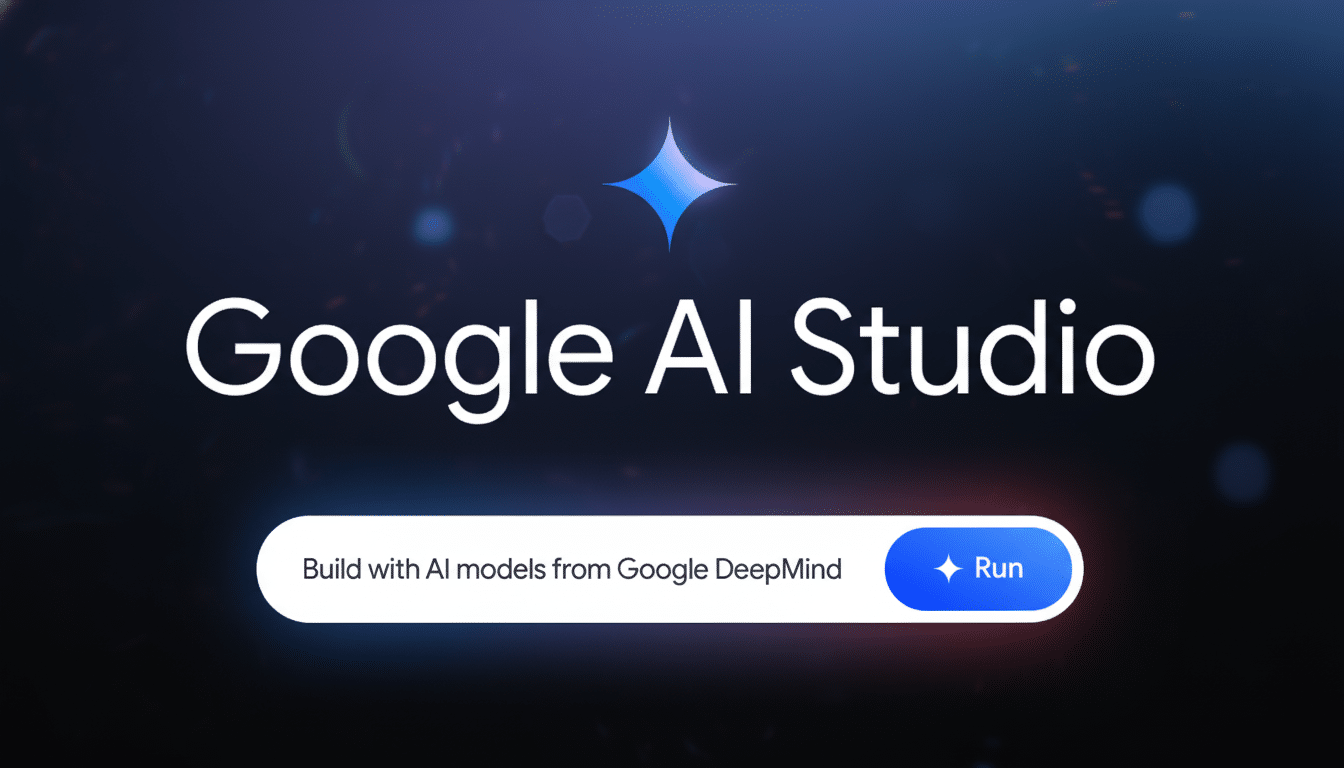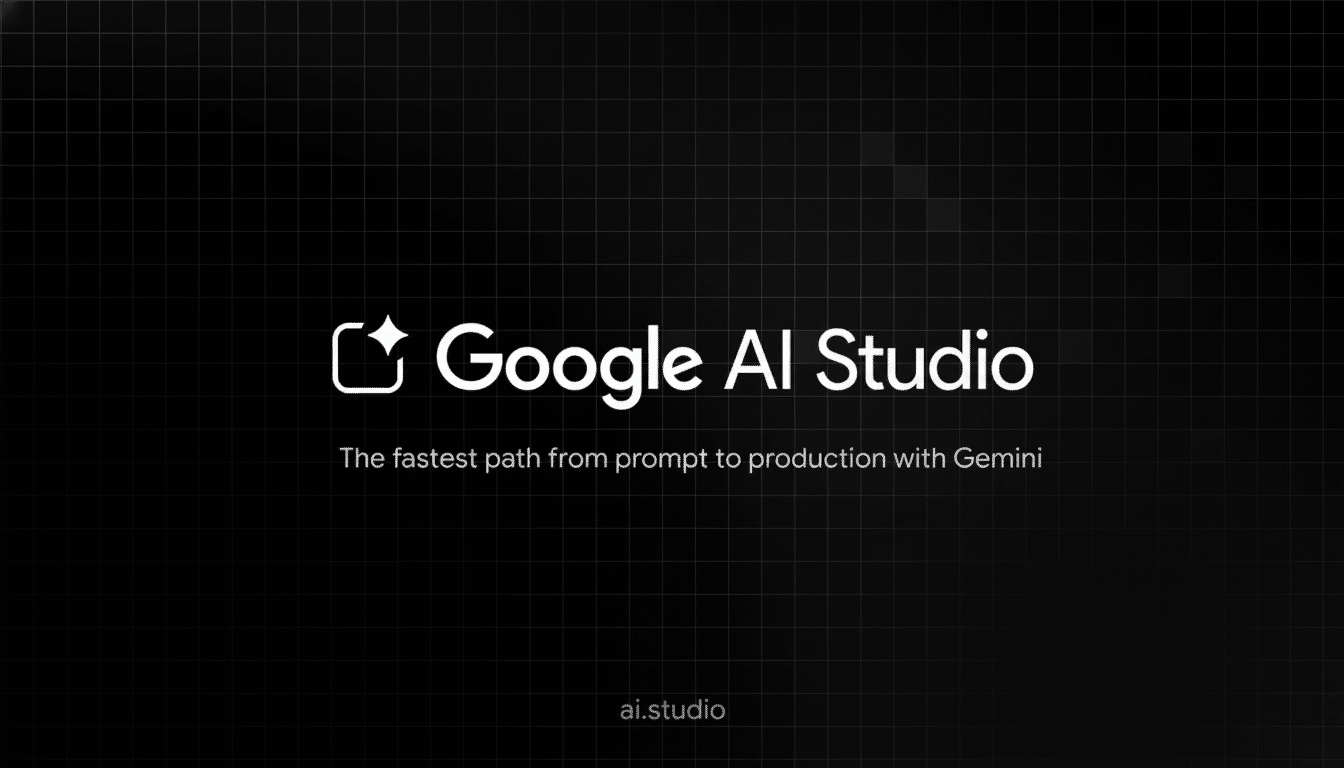Google is working on a mobile app for AI Studio, its workspace powered by Gemini that recasts natural language prompts as executable code. The shift is supposed to help pull “vibe coding” onto phones, enabling developers to hatch ideas, build, and experiment wherever they are — not just at a desktop.
The plan was leaked after Google AI Studio leads began teasing the project on X, where they asked users to request new features for the mobile experience. Platforms and timing are unknown so far, and there are surely plans to come soon, but the mandate is clear: make AI-first coding portable without having to compromise on the AI Studio workflow.
- What AI Studio does now and how developers use it
- Why a mobile app matters for AI Studio and developers
- Likely features and workflows for a mobile AI Studio app
- How it fits in the current competitive landscape
- Key questions still unanswered about the mobile app
- The bottom line on Google’s mobile AI Studio plans

What AI Studio does now and how developers use it
AI Studio is Google’s browser-based launchpad for the Gemini API. Developers employ it to prototype prompts, test models, adjust safety settings, and export generated code in programming languages such as JavaScript, Python, Kotlin, and Swift. It also makes API key creation simpler, offers quickstart snippets, and handles multimodal inputs where models permit.
The appeal is speed. Rather than starting from scratch wiring up an app, teams sketch functionality in natural language, have Gemini scaffold the core logic, and export snippets into their IDE. And it’s this speedy loop that “vibe coding” is in reference to: you focus on intent and let the AI handle the boilerplate, first crack.
Why a mobile app matters for AI Studio and developers
Developers don’t spend all their time at desks. During commutes, they triage bugs, read pull requests while moving between meetings, and capture ideas in notes. Something like a phone-native AI Studio could turn those moments into actual progress: source up a POC REST endpoint, scaffold out a data model, or sketch in rough brushstrokes of a few prompts for that UI component.
There is evidence to support the bet on AI-assisted flow. In a blind study, GitHub said developers using Copilot completed a task with 55% greater speed vs. those who did not use it and were more likely to succeed at the assigned coding task. It has even been noted by Stack Overflow’s Developer Survey that over half of developers today use AI for virtual assistants on a weekly basis. A mobile AI Studio would bring that same efficiency to the last mile—context capture and iteration on the move.
Likely features and workflows for a mobile AI Studio app
Expect parity with AI Studio’s core web functionality: conversational prompting, code generation in a choice of language, and single-click exporting to framework-specific snippets. As a result of Google’s already being invested in the world of SDKs, I’d expect us to see flows that produce Android and iOS starter code (as well as samples for things like authentication, storage, simple database connectivity).

On mobile, shareability matters. Think shareable prompt sessions for teammates, a quick link to export working sample to a repo, and allow hand-off to desktop IDE for deeper editing. Inline token usage guidance and safety toggles would allow teams to keep the outputs predictable. Key management and secure organization-level controls will be critical for enterprise users; these needs are now often addressed with Google Cloud’s governance stack today, so a mobile app will need to make clean handshakes with existing policies.
How it fits in the current competitive landscape
Rivals have already cleared portions of the trail. GitHub’s mobile app has added Copilot chat functionality, and Replit’s mobile experience demonstrates that, with the help of intelligent AI, coding on phones can be viable. Google’s value-add is tight integration with Gemini models and the wider Android ecosystem, as well as familiarity for teams already prototyping in AI Studio on the web.
If Google pulls this off, mobile AI Studio could be the go-to sidekick for brainstorming architectures, stitching together test suites, and producing scaffolds that developers then polish on a laptop. That’s a complement, not a replacement, to full IDEs.
Key questions still unanswered about the mobile app
Google hasn’t said which platforms will be supported, which model tiers will get access, or what the pricing implications might be for mobile usage. It’s also not clear how much of the experience will function offline. Since AI Studio is based on server-side inference for Gemini, assume connectivity will continue to be a factor, and on-device accelerations may only extend to utilities like syntax highlighting or local previews.
Privacy and governance are in the hot seat. Teams will need a clear understanding of how prompts, code, and telemetry are managed on mobile, and how (or if) admin controls from the web also apply. Integration with Android Studio, Firebase, and Git tooling on mobile is also top of developers’ request lists.
The bottom line on Google’s mobile AI Studio plans
A mobile AI Studio is certainly a natural extension of Google’s Gemini developer strategy. It will hopefully turn idle minutes into iterative progress and make “vibe coding” an always-on experience across all of your devices. If Google can nail security, collaboration, and smooth desktop handoff, the app has a chance to be an essential slot in developers’ toolkits.

